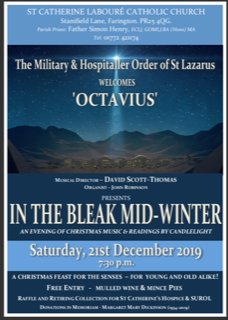Never give up!
We are in the process of sending in "PROPOSALS" for the first Synod theme "All called and gifted by God". Five from each parish. Despite much publicity and explaining here in my own parish we had only 15 proposals that came in. Unfortunately very few were actually proposals - more comments and concerns much like the "previous "listening" part of the process. Many also only related to this particular parish, rather than the diocese. I tried again the next week and received a few more but really with much the same in content. The concerns mostly focused around schools, young people and a dignified liturgical celebration - including provision of the EF Mass.
The four of us Synod members from this parish then got together and, to be honest, we didn't get much further. We can all identify concerns and areas where we would like to see the Church doing better but concrete proposals of how to do this seemed a bit beyond us. Perhpas the "avarage" person in he pew just doesn't' care enough, perhaps they just don't know enough about how the church works to know what to suggest, perhaps they think that's the job of the bishop and priests.
We did come to the conclusion that most of what we would suggest to be taken up is really already mandated, commanded and taught (at an official level) but that most of these things are not enforced, practiced, encouraged, taught or implemented. So, for example:
+++
Fewer and fewer people coming to Mass....
Canon Law and the Catechism teach plainly that this is not allowed and indeed sinful.
+++
Our schools bear the epithet "Catholic"...
But more and more the Faith is not taught well in them, it is watered down and we have capitulated to the secular gods of climate, diversity and taking part in Red Nose Day. To say nothing of the fact that so many teachers are not practising Catholics and the vast majority of the children attending neve go to Mass and their families can in no way be said to be practising the Faith.
+++
The liturgical documents of the Second Vatican Council clearly mandate the retention of the Latin language and lain chant in the celebration of the liturgy...
Show me the diocese or the seminary where this is encouraged.
+++
If people will not follow the basic teachings of the Faith - or have never been taught it - why do we think they will suddenly come along because we introduce an extra layer of bureaucracy in some local committee or an out-reach worker?
+++
We came to the conclusion that we already have an excellent program of teaching and structures but we have simply abandoned them, ignored them, watered them down, allowed them to be tainted by secularism. We seem to be ashamed of them and on the look-out for someone else's hobby horse to jump on. Or looking for methods and structures lifted from the corporate and secular world as "new" models we might adopt (which never seem to work very well in the Church's unique situation).
That is, we are suffering from a lack of joyful pride in who we are, embarrassed at the teachings Jesus left us and abandoned the lessons the Church has learnt over 2,000 years, believing only "new" things can make us shinny and attractive to the modern world.
We have allowed ourselves to be caricatured as the gossipy old biddy in the sitcom; the priest who always leaves his ministry because he falls in love in every film; or even worse, that all priests are tainted with unnatural desires, deformed by their vow of celibacy; that our Faith cannot any longer be presented in it's fullness because we too have followed the world and given up believing in it. If we don't have confidence in it, how can we expect anyone else to?
Never give up!
























